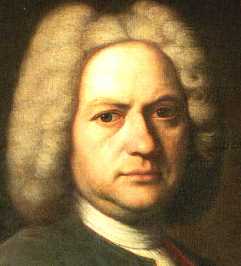Bach – Chaconne In D Minor (Orchestration of Partita)
Bach – Chaconne In D Minor (Orchestra)

Chaconne in D minor (orchestration of Partita for Violin Solo No. 2, BMV 1004) 1. Leopold Stokowski Symphony Orchestra (1940) 2. Boston Symphony Orchestra (Seiji Ozawa)
Bach composed his second Partita for the solo violin sometime between 1717 and 1723. Though published along with the other two Partitas and the three Sonatas in 1802, it remained a neglected work until the German violinist Joseph Joachim began performing it and its companions. It follows the basic outline of the Baroque dance suite, utilizing only the four usual dances. The Gigue, however, is followed by the monumental Chaconne for which the work is most known. Compared to the proportions of the work, the Chaconne exceeds the length of the previous four movement combined. In terms of its substance, it is immeasurable. Concerning the Chaconne, Johannes Brahms wrote to Clara Schumann, "On one stave, for a small instrument, the man writes a whole world of the deepest thoughts and most powerful feelings. If I imagined that I could have created, even conceived the piece, I am quite certain that the excess of excitement and earth-shattering experience would have driven me out of my mind."
The Chaconne is based on the harmonic progression, presented in multiple-stops, above the ground bass: D-D-C sharp-D-B flat-G-A-D. The variations that follow are a compendium of the various aspects of violin technique known in Bach's time, thus making it one of the most technically challenging pieces in the repertoire. In terms of broad musical structure, the Chaconne forms a tripartite form with a middle set of variations modulating to the parallel major. It ends with a repetition of the Chaconne theme in its original setting and a sort of coda with a varied statement of the ground bass.
Many transcriptions of the piece have been made. Brahms made his own transcription for piano/left-hand only and Busoni for both hands. Transcriptions also exist for guitar, orchestra and organ. ---Joseph DuBose, classicalconnect.com
download: uploaded anonfiles mega 4shared mixturecloud yandex mediafire ziddu
Last Updated (Thursday, 08 August 2013 11:33)








